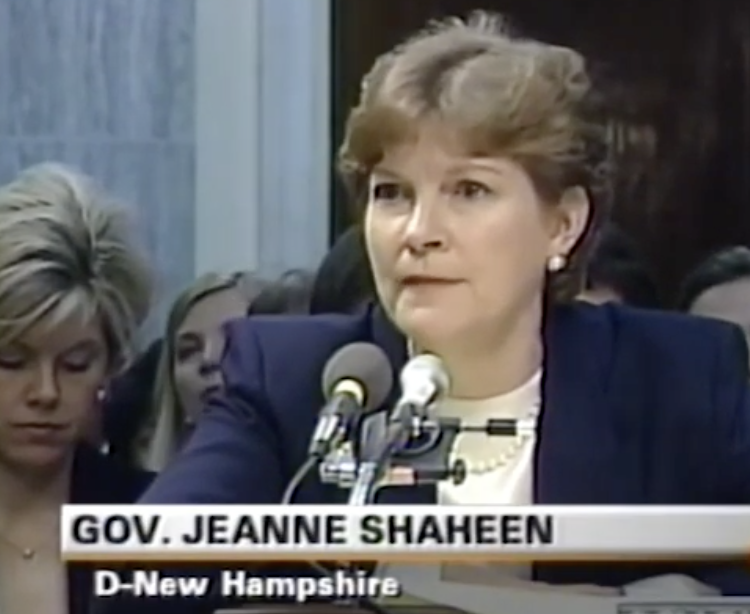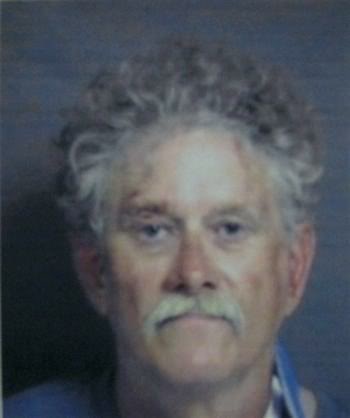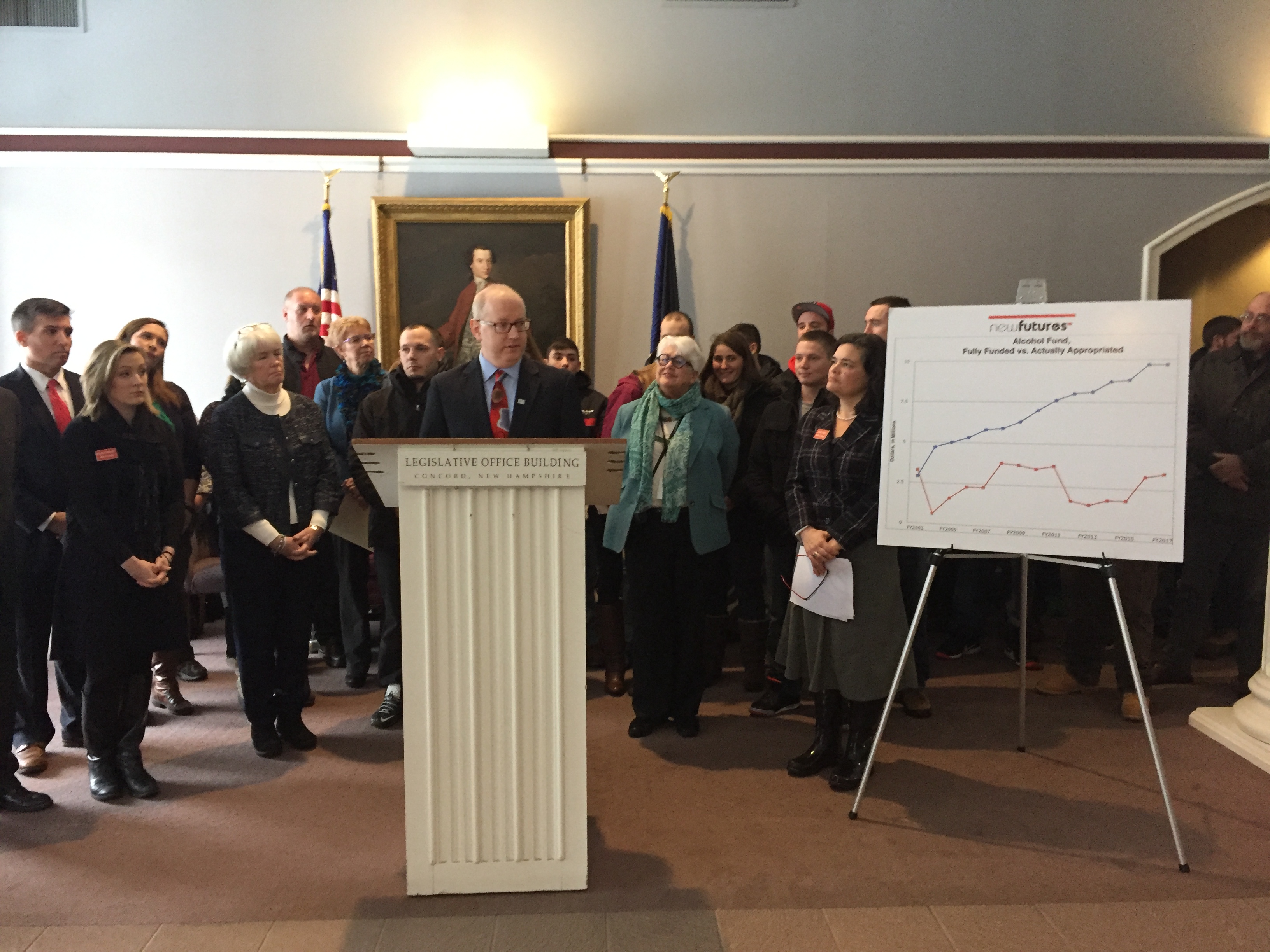Shaheen Calls Sununu ‘Cowardly’ On Guns. But Remember Carl Drega?

In the wake of the school shooting in Uvalde, Texas, U.S. Sen. Jeanne Shaheen took to Twitter to accurse Gov. Chris Sununu of cowardice. But her own record as governor is problematic.
In response to a tweet from Sununu regarding the Robb Elementary School shooting, Shaheen wrote, “How can anyone be complacent with this status quo? Refusing to enact common-sense gun reforms is cowardly, irresponsible, and deadly.
“Buffalo. Uvalde. Tulsa. Las Vegas. Orlando. Newtown. Parkland. Aurora. Columbine,” Shaheen added. “The list goes on.”
But there is another town she could have added to the list: Colebrook, N.H.
In August 1997, Carl Drega shot and killed four people in Colebrook, including two New Hampshire State troopers in the state’s only mass shooting.

Carl Drega
Described as a disgruntled loner who blamed local officials for his wife’s death from cancer, the 62-year-old Drega had repeatedly been involved in disputes over zoning regulations and property taxes with the town of Columbia, N.H. Years of frustration boiled over into deadly rage on August 19 when state troopers Les Lord and Scott Phillips pulled him over for excessive rust on his truck.
Drega stole the dead officers’ police car and drove to Colebrook District Court to hunt down Judge Vicki Bunnell, who was also a Columbia selectwoman and had a restraining order against him. Drega shot her eight times in the back. When Dennis Joos, editor of the Colebrook News and Sentinel, tried to wrestle the AR-15 away from him, Drega killed him, too.
Drega went to his house in Columbia and set it on fire. He was confronted by N.H. Fish and Game warden Wayne Saunders, who Drega shot and wounded. He then fled across the river to Vermont for a last stand, during which three more law enforcement officers were wounded before Drega was finally shot to death.
It was a shocking crime in a small community. A library in Stewartstown was later named for Joos in honor of his courage. Books have been written about the horrific events of that August day.
And who was governor in 1997? Democrat Jeanne Shaheen.
In the aftermath of New Hampshire’s only mass shooting, then-Gov. Shaheen didn’t sign any laws restricting gun ownership or making it more difficult to buy AR-15s. Indeed, Democrats have held the corner office for 19 of the 25 years since Drega’s rampage and New Hampshire still has some of the least restrictive gun laws in the nation.
NHJournal repeatedly contacted Shaheen’s office for a comment about her gun control record, her accusation of cowardice against Gov. Sununu, and what she would do in response to the mass shooting in Texas. She declined to respond.
Associate Attorney General Jeff Strelzin, Director of the Public Protection Division, said the FBI defines mass shooting incidents as those with four victims, not including the shooter or shooters.
“The Congressional Research Service defines mass shootings as multiple, firearm, homicide incidents, involving four or more victims at one or more locations close to one another,” Strelzin said.
While Drega’s shooting is the only one to meet the FBI’s definition of a mass shooting, Strelzin said there are two other incidents in which three people were shot.
In July 2007, Michael Woodbury shot and killed three men in a store in Conway. In 2010, Ken Arsenault shot three people in Pittsburg. One victim later died.
Both of those shootings also occurred on the watch of Democratic Gov. John Lynch. During his record four terms, no significant gun restrictions were put into place.
Hassan’s contribution to gun control as governor was vetoing the constitutional carry bill that Sununu would go on to sign into law.
The Gifford Law Center, a non-profit dedicated to preventing gun violence, gives New Hampshire an F in gun control laws.
“New Hampshire lacks many basic gun safety protections and, in fact, has weakened its gun laws in recent years—state lawmakers must reverse this deadly trend,” the Giffords ranking states. “New Hampshire has not passed any meaningful gun safety laws in years, and recently enacted a law that allows people to carry loaded, hidden handguns in public without a background check or permit.”
But according to Jim Goulden, a Nashua defense attorney who specializes in gun crime cases, New Hampshire politicians who support gun control usually end up out of office.
“I don’t know of any New Hampshire politician who has pushed for greater gun control,” he said.
New Hampshire’s gun laws tend to focus on punishing people who use firearms in the commission of a crime, or who possess firearms while being legally prohibited from doing so, he said. Goulden said the results of New Hampshire’s laws are evident.
“If we’re going by crimes involving firearms, New Hampshire has very good gun control, we have very few gun crimes,” he said.
Last year, the FBI released crime statistics for 2020, finding a 30 percent surge in murders nationwide, but not in New Hampshire. According to the FBI’s data, there were 6.5 murders per 100,000 people nationally. In New Hampshire, it was 0.9 per 100,000 or 12 murders for all of 2020.
The 2020 statistic may be an anomaly. Michael Garrity, director of communication for the New Hampshire Department of Justice, said the state typically averages about 19 murders per year, and 2022 is following the trend.
“There have been 11 so far this year, so there has been no spike in homicides,” he said.
Goulden said no matter the gun laws anyone wants to propose, the only real change will happen when people start getting serious about addressing mental illness.
“Until people start taking personal responsibility for themselves and their own families, mental illness, always going to be an outlier,” he said.




